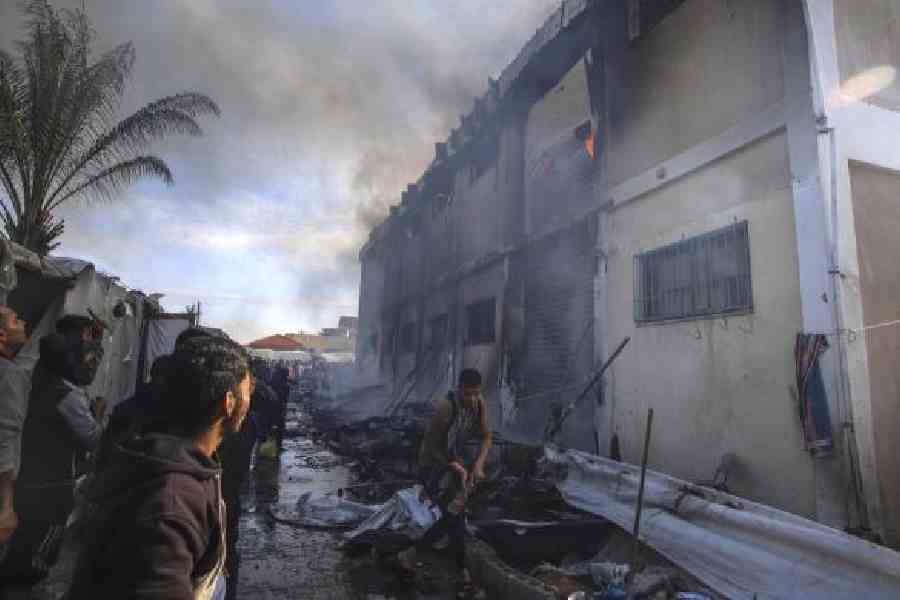The fear has been building for weeks.
More than 1 million Palestinians fled into Rafah, the southernmost region of the Gaza Strip, hoping to escape the war. Now, Israel has threatened to extend its invasion there, too.
Amid days filled with struggles to secure food, water and shelter, uncertainty has dominated people’s conversations, said Khalid Shurrab, a charity worker staying with his family in a leaky tent in Rafah.
“We have two options, either to stay as we are or face our destiny — death,” said Shurrab, 36. “People literally have no other safe place to go.”
Rafah, which so far had been spared the brunt of Israel’s onslaught, has become a new focal point of a war now in its sixth month. It is where most of Gaza’s 2.2 million people have ended up, multiplying the area’s population and exhausting its limited resources.
And now, with Israel signaling its intent to go after Hamas militants in Rafah, and Egypt blocking most Palestinians in Gaza from crossing its border to the south, families fear they are trapped.
In Rafah Governorate, home to fewer than 300,000 people before the war, space has become a rare commodity. Displaced families pack schools, tent camps sprawl across empty lots and pedestrians crowd streets.
Cooking gas is so scarce that the air is acrid with smoke from fires burning salvaged wood and chopped-up furniture. Fuel is expensive, so people walk, ride bicycles, or take carts drawn by donkeys and horses. Since Rafah sits along the Egyptian border, where most of the aid enters from, it receives more supplies than other parts of Gaza.
Still, many residents are so desperate that they throw rocks at aid trucks to try to make them stop or swarm them to try to grab whatever they can. Hundreds of people were killed and injured amid a stampede and Israeli gunfire when a convoy of trucks tried to deliver aid in Gaza City, in the territory’s north, last month.
Most people taking shelter in Rafah spend their days trying to secure basic needs: finding clean water for drinking and bathing, getting enough food and calming their children when Israeli strikes hit nearby. “Everything is difficult here,” said Hadeel Abu Sharek, 24, who is staying with her 3-year-old daughter and other relatives in a shuttered restaurant in Rafah. “Our dreams have been smashed. Our life has become a nightmare.”
Her family usually only manages to find enough food for one meal per day, she said, and while they boil water before drinking it, many of them have been sick, including her daughter. They have no easy place to obtain medicine.
“The bombing is terrifying, especially for the children,” she said, adding that everyone clustered in a corner when they heard Israeli strikes, fearing the roof would fall on them.
The restaurant was their second stop since leaving their homes in northern Gaza during the start of the war. They now have to move again, she said. The restaurant is kicking them out, but gave them some metal bars and waterproof cloth to build a makeshift tent.
Shelter is so scarce that rents have skyrocketed, schools have become de facto refugee camps, and many families sleep in tents or string up plastic sheeting to protect themselves from the rain.
Not long after the invasion began, Ismail al-Afify, a tailor from northern Gaza, set up camp with his family under a concrete stairwell in a school. The building has since filled with many other refugees, with four families sometimes sharing a single classroom. Al-Afify’s sons keep an eye out for aid and water trucks so they can rush over and try to get supplies.
New York Times News Service











